
Mystical Majesty of the Scottish Highlands
The Scottish Highlands, located in the northern part of Scotland, are an enchanting destination that beckons travelers with its dramatic landscapes, rich history, and vibrant culture. This region is renowned for its stunning natural beauty, featuring rugged mountains, deep lochs, and misty glens. As you traverse the winding roads, you will be greeted by breathtaking vistas that have inspired poets and painters for centuries. The Highlands are steeped in history, with ancient castles, battlefields, and standing stones that tell tales of clans and kings. The Highlands offer a diverse range of activities for outdoor enthusiasts. Hikers can explore the many trails that wind through the mountains, offering views that are both awe-inspiring and serene. Ben Nevis, the highest peak in the UK, is a must-visit for those seeking a challenging climb. For those who prefer a more leisurely pace, scenic drives through the glens and along the coast provide ample opportunities for photography and wildlife spotting. The region is home to red deer, golden eagles, and even the elusive Scottish wildcat. Beyond its natural attractions, the Scottish Highlands are rich in cultural experiences. Visit the bustling town of Inverness, often considered the capital of the Highlands, to explore its historic sites and vibrant arts scene. Delve into the region's whisky heritage by touring one of the many distilleries that produce the world-famous Scotch whisky. Engage with the local Gaelic culture through music, dance, and storytelling, which are integral parts of Highland life. Whether you are a history buff, nature lover, or cultural enthusiast, the Scottish Highlands promise an unforgettable journey.
Local tips in Scottish Highlands
- Pack layers and waterproof clothing, as the weather in the Highlands can change rapidly.
- Renting a car is the best way to explore the remote and scenic areas at your own pace.
- Visit in late spring or early autumn to avoid the summer crowds and enjoy milder weather.
- Try traditional Scottish dishes like haggis, neeps, and tatties at local pubs and restaurants.
- Book accommodations in advance, especially during peak travel seasons, to secure the best options.
Mystical Majesty of the Scottish Highlands
The Scottish Highlands, located in the northern part of Scotland, are an enchanting destination that beckons travelers with its dramatic landscapes, rich history, and vibrant culture. This region is renowned for its stunning natural beauty, featuring rugged mountains, deep lochs, and misty glens. As you traverse the winding roads, you will be greeted by breathtaking vistas that have inspired poets and painters for centuries. The Highlands are steeped in history, with ancient castles, battlefields, and standing stones that tell tales of clans and kings. The Highlands offer a diverse range of activities for outdoor enthusiasts. Hikers can explore the many trails that wind through the mountains, offering views that are both awe-inspiring and serene. Ben Nevis, the highest peak in the UK, is a must-visit for those seeking a challenging climb. For those who prefer a more leisurely pace, scenic drives through the glens and along the coast provide ample opportunities for photography and wildlife spotting. The region is home to red deer, golden eagles, and even the elusive Scottish wildcat. Beyond its natural attractions, the Scottish Highlands are rich in cultural experiences. Visit the bustling town of Inverness, often considered the capital of the Highlands, to explore its historic sites and vibrant arts scene. Delve into the region's whisky heritage by touring one of the many distilleries that produce the world-famous Scotch whisky. Engage with the local Gaelic culture through music, dance, and storytelling, which are integral parts of Highland life. Whether you are a history buff, nature lover, or cultural enthusiast, the Scottish Highlands promise an unforgettable journey.
When is the best time to go to Scottish Highlands?
Iconic landmarks you can’t miss
Commando Memorial
A powerful WWII tribute set amidst stunning Highland vistas, honoring the bravery and sacrifice of British Commandos.
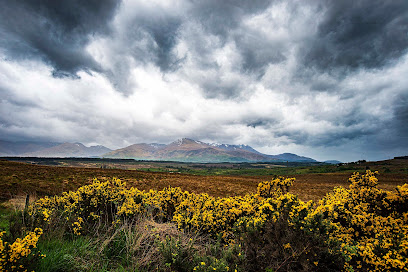
Forth Bridge
A breathtaking Victorian cantilever railway bridge and UNESCO World Heritage Site symbolizing Scotland’s industrial might and engineering brilliance.
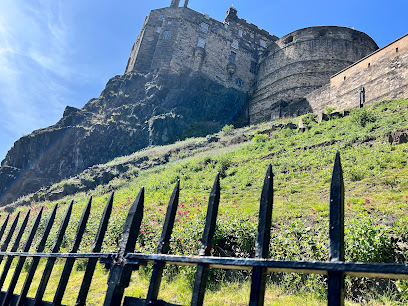
Glenfinnan Monument - National Trust for Scotland
An iconic Highland monument commemorating Jacobite clansmen with breathtaking views over Loch Shiel and historic ties to Bonnie Prince Charlie.
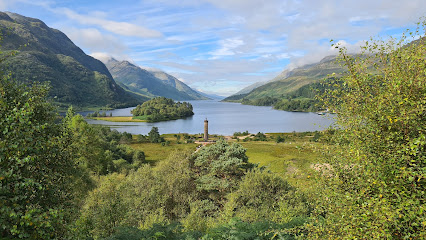
Loch Ness View Point Fort Augustus
Iconic Highland panorama where Loch Ness meets legend at Scotland's most accessible waterside viewpoint.
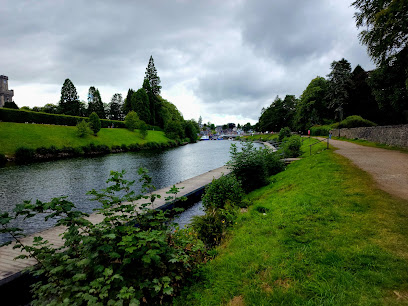
Ardvreck Castle
A haunted 15th-century ruin steeped in betrayal, legend, and Highland majesty on Loch Assynt.
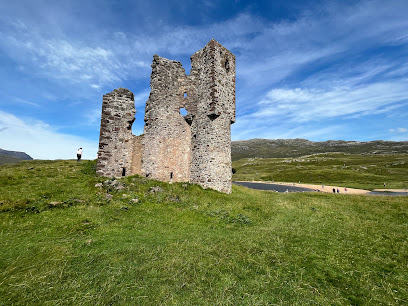
Fyrish Monument
A striking 18th-century folly on a Highland hilltop, inspired by an Indian gateway and built to provide work for local tenants during a time of hardship.
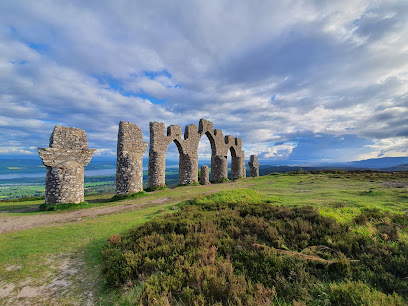
Bridge of Oich
Victorian engineering marvel: a rare surviving taper-principle suspension bridge from 1854.
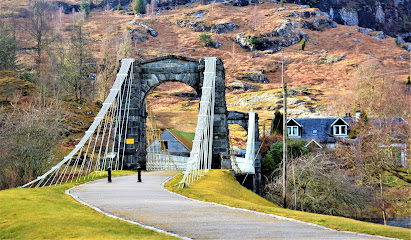
Tioram Castle
A hauntingly beautiful ruined castle on a tidal island in Loch Moidart, once the seat of Clanranald and the Lords of the Isles.
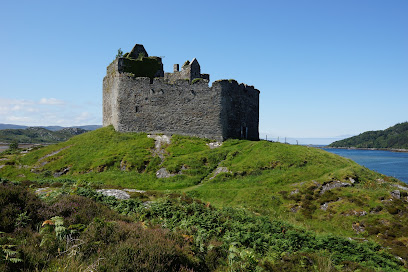
Auchen Castle
Historic Scottish fairytale castle and elegant wedding venue nestled in scenic Dumfries and Galloway with unique Egyptian revival architecture.
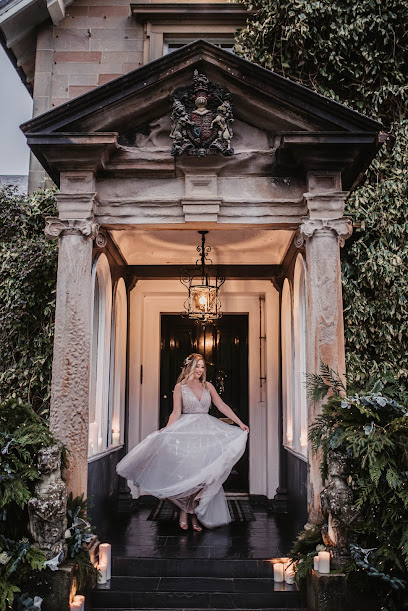
Centre of Scotland Stone
Discover the symbolic heart of mainland Scotland marked by a majestic stone set amidst the tranquil Highlands near Newtonmore.
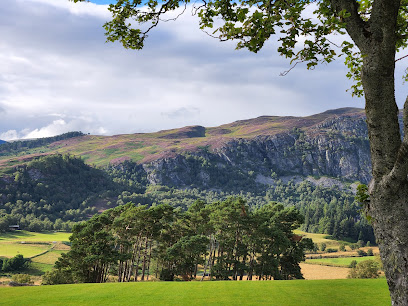
Official end of the West Highland Way
Celebrate the end of Scotland’s iconic West Highland Way in Fort William, where rugged mountains meet vibrant Highland culture.
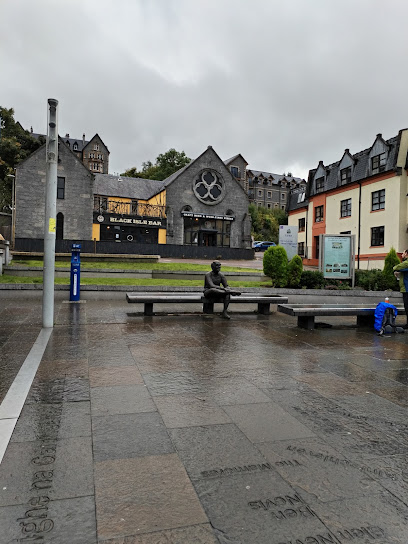
Walkhighlands
Explore Scotland step by step with Walkhighlands, your comprehensive guide to hiking and walking routes across the Highlands and beyond.
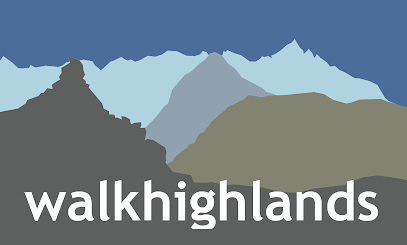
Unmissable attractions to see
Edinburgh Castle
Explore Edinburgh Castle, a historic fortress with breathtaking views, royal treasures, and centuries of Scottish heritage in the heart of the capital.
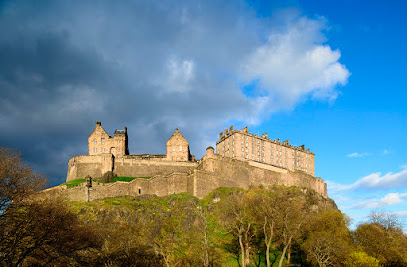
National Museum of Scotland
Discover Scotland’s heritage, natural wonders, and innovation at the National Museum of Scotland, a captivating cultural landmark in Edinburgh.
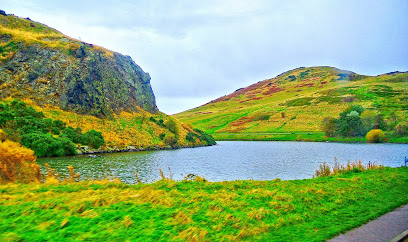
The Kelpies
Giant steel horse heads rising from a vast parkland, blending myth, industry and art in the heart of central Scotland.
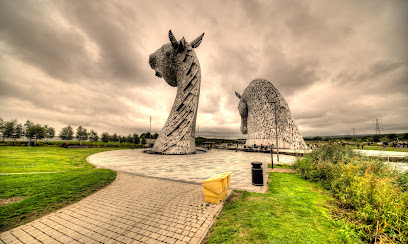
Urquhart Castle
Explore the dramatic ruins of Urquhart Castle overlooking Loch Ness, where a millennium of Scottish history and stunning Highland views await.

Palace of Holyroodhouse
Explore Scotland’s royal heritage at the Palace of Holyroodhouse, where history, grandeur, and royal tradition converge at Edinburgh’s iconic landmark.
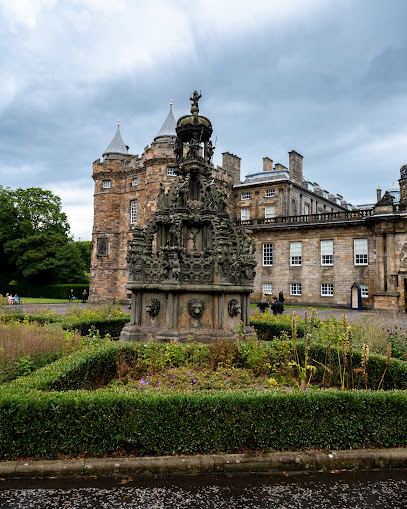
Royal Mile
Discover Edinburgh’s historic Royal Mile, a vibrant medieval street linking castle and palace with rich heritage, culture, and lively Scottish spirit.
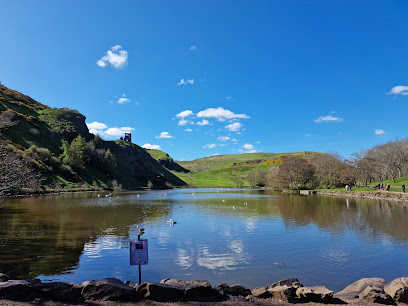
Loch Lomond & The Trossachs National Park
Where Scotland’s iconic lochs meet rugged highlands, offering breathtaking nature, wildlife, and adventure just north of Glasgow.

Culloden Battlefield
Step onto the historic moor where the last pitched battle on British soil unfolded, and immerse yourself in Scotland’s turbulent past.
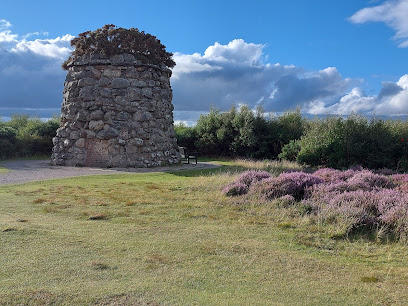
Cairngorms National Park
Explore the UK’s largest national park, where rugged mountains, ancient forests, and rich Highland heritage create an unforgettable wilderness adventure.
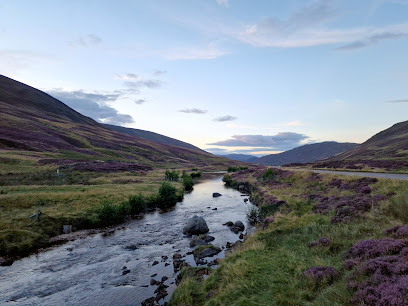
Dunrobin Castle & Gardens
Explore Dunrobin Castle’s fairy-tale turrets, historic interiors, stunning gardens, and captivating falconry displays in Scotland’s Northern Highlands.
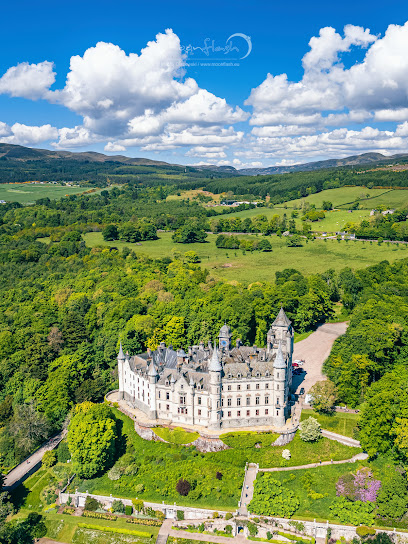
Glenfinnan Viaduct
Experience the iconic Glenfinnan Viaduct, a breathtaking Highland landmark famed for its sweeping arches, historic Jacobite ties, and cinematic magic.
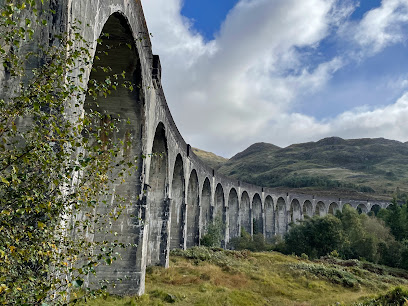
Chanonry Point
Experience breathtaking close-up encounters with wild bottlenose dolphins at Chanonry Point, a stunning natural lookout on Scotland’s Moray Firth.
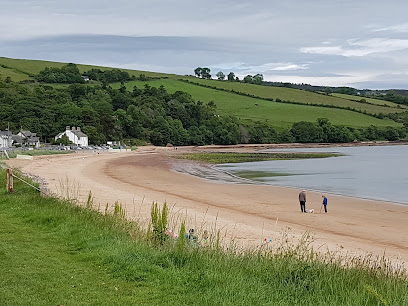
Landmark Forest Adventure Park
Explore Scotland’s Cairngorms with thrilling forest adventures, dinosaur kingdoms, and magical illuminated trails for all ages.
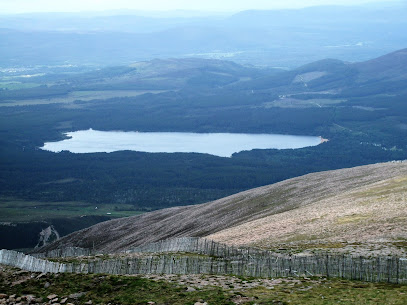
Fort George
Explore Fort George, an immense 18th-century star fort near Inverness, blending military history, panoramic views, and active army heritage.
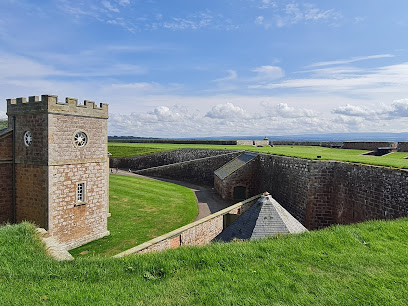
Cawdor Castle and Gardens
Explore the enchanting 14th-century Cawdor Castle and its stunning gardens, where history, legend, and Highland beauty unite.

Essential places to dine
The Witchery by the Castle
A gothic luxury retreat on Edinburgh’s Royal Mile, blending historic charm, sumptuous suites, and enchanting fine dining near Edinburgh Castle.
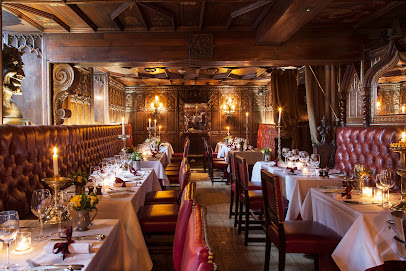
The Lock Inn
Cozy canalside pub with original features, hearty fare, and scenic views in the heart of Fort Augustus, Scotland.
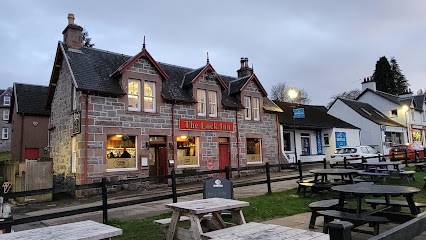
Fiddlers Highland Restaurant
Cozy Highland dining with authentic Scottish flavors and an award-winning whisky selection in the heart of Loch Ness country.
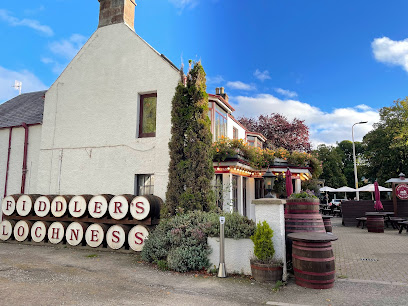
Brea - Scottish Restaurant
Authentic Scottish cuisine with a modern twist, celebrated for fresh local ingredients and award-winning seafood in the heart of Stirling.
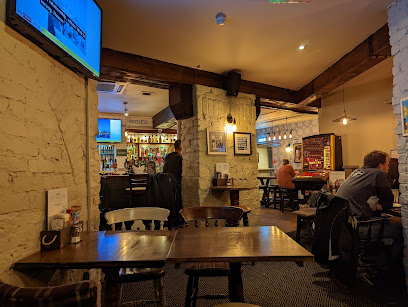
Nevis Range Restaurant
Experience authentic Scottish flavors and stunning Highland views at Nevis Range Restaurant near Spean Bridge.
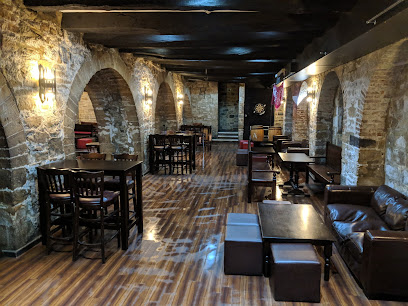
The Boathouse Restaurant
Dine over the waters of Loch Ness with panoramic views and a menu blending Scottish classics and Mediterranean flavors.
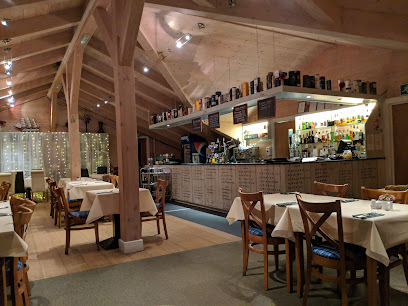
The Laroch Restaurant and Bar
Cozy Highland dining with hearty portions and tender meats in the welcoming village of Ballachulish.
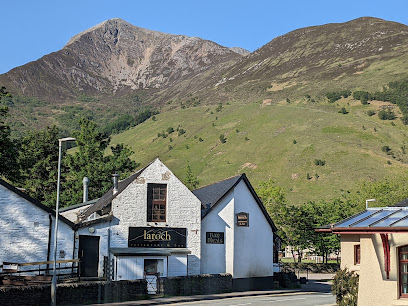
Girvans
A vibrant modern restaurant in Inverness offering fresh local dishes, artisan coffee, and handmade pâtisserie in a welcoming atmosphere.
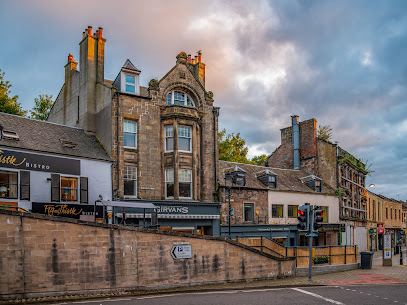
The Allangrange
Experience warm Highland hospitality, hearty Scottish cuisine, and cozy comfort at The Allangrange Arms in Munlochy’s scenic Black Isle.

The Moorings Restaurant
Casual canal-side dining with hearty Scottish and Turkish-inspired dishes, generous portions, and friendly service in the heart of Fort Augustus.
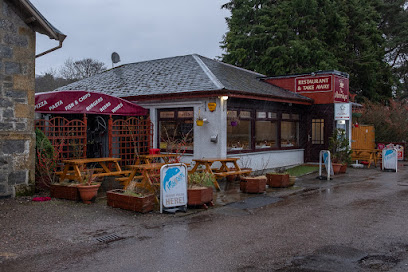
The Clachan
Experience authentic Highland hospitality with traditional Scottish fare, local ales, and lively music in the heart of Dornie village.
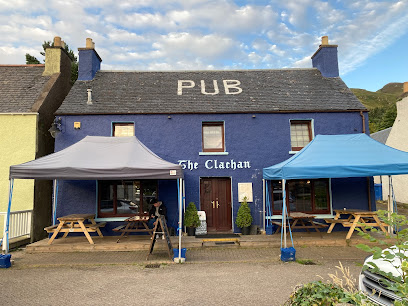
Old Station Restaurant
Historic Victorian railway charm meets hearty Scottish fare and real ales in the heart of Spean Bridge.
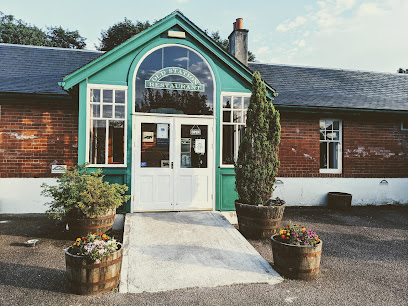
North Port Scottish Restaurant
Historic charm meets modern Scottish cuisine in a cozy, Michelin Guide–recommended restaurant in the heart of Perth.
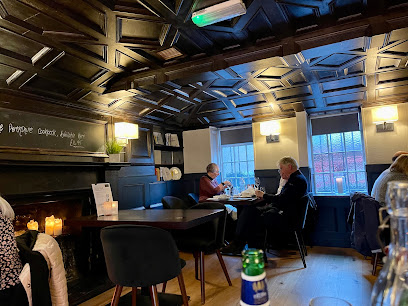
Andersons Restaurant
Cozy and intimate dining in Boat of Garten, blending bistro charm with Scottish flavors for memorable family and special occasions.
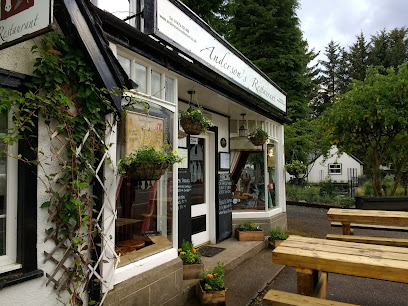
Emily's Byre
A cozy Highland restaurant blending authentic Northern Frontier Indian cuisine with traditional Scottish flavors in a charming rustic setting.
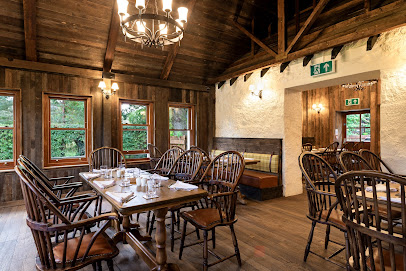
Markets, malls and hidden boutiques
Moffat Mill
Discover authentic Scottish crafts, souvenirs, and café delights in the historic charm of Moffat Mill.
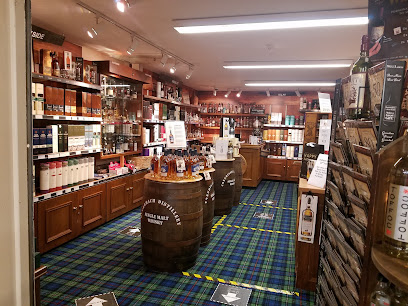
Heritage of Scotland
Authentic Scottish gifts and kilts at the heart of Edinburgh’s historic Lawnmarket, celebrating heritage and craftsmanship.
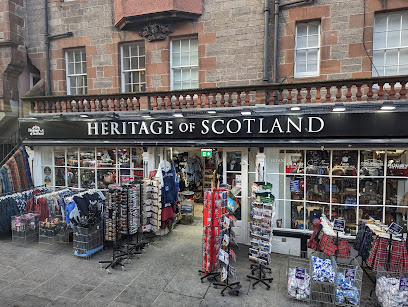
The Scotland Shop
Discover authentic Scottish tartans, bespoke kilts, and heritage gifts at The Scotland Shop in Edinburgh’s historic South Bridge.
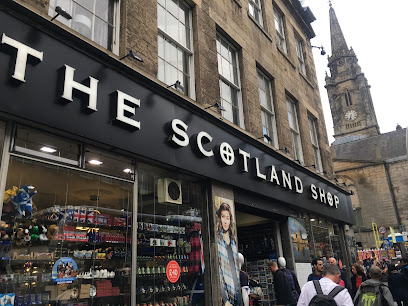
The Hairy Coo Shop
Discover authentic Scottish charm and unique Highland gifts at The Hairy Coo Shop, a cozy Newtonmore treasure with warm welcomes and fresh sandwiches.
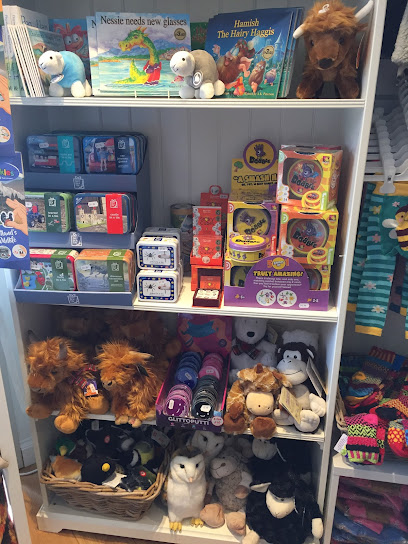
Lothlorien Antique & Collectables Emporium
Discover timeless treasures and a captivating toy museum in the heart of Moffat’s charming antique emporium.
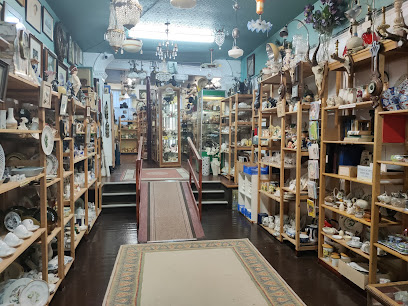
Highland Stores
Discover authentic Scottish outdoor clothing and iconic Dunoon mugs at Highland Stores, Dunoon’s welcoming boutique on Argyll Street.
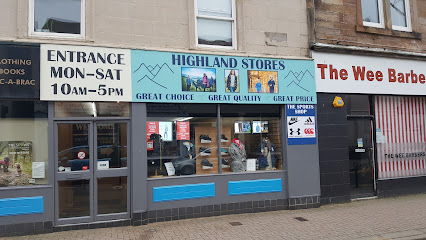
Braw Wee Emporium
Discover unique Scottish gifts and creative workshops at Braw Wee Emporium, Glasgow’s beloved boutique for local artistry and handmade treasures.
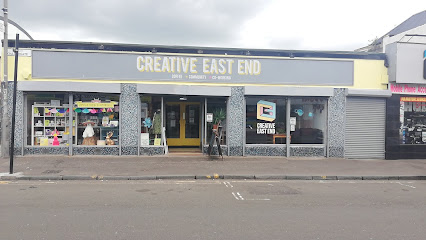
House of Scotland
Discover authentic Scottish souvenirs and traditional Highland wear at House of Scotland on Edinburgh’s historic Royal Mile.
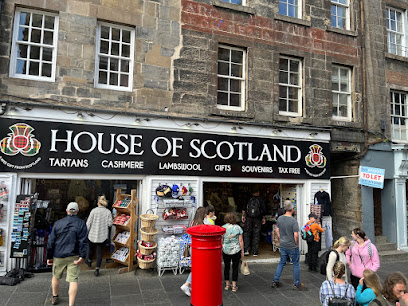
Silver & Fern Jewellery
Exquisite handcrafted fine jewellery from central Scotland, blending natural inspiration with timeless elegance and sustainable craftsmanship.
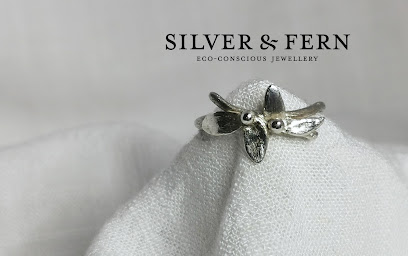
Bafoo Shop
Bafoo Shop offers expert pet supplies and services in a serene Alpine setting, blending quality care with natural beauty.
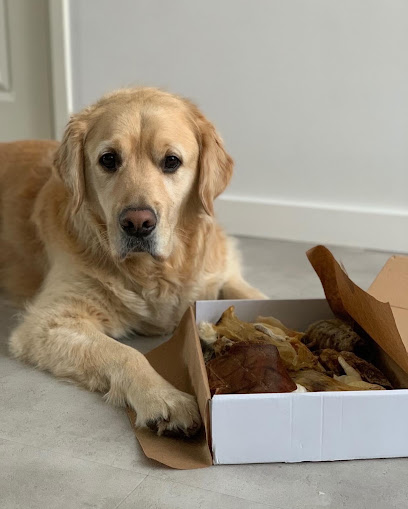
McRaes of Scotland
Discover authentic Scottish souvenirs and cashmere treasures at McRaes of Scotland, Invergordon’s premier gift shop on High Street.
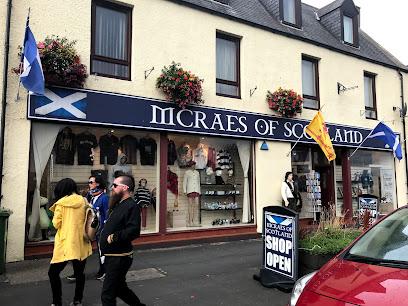
Wildflower Designs
Discover unique handmade gifts and artisan crafts at Wildflower Designs, Moffat’s charming boutique on High Street.
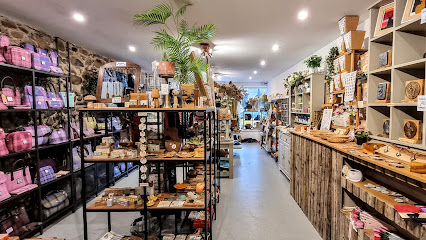
Rhubarb Store
Discover Rhubarb Store’s curated vintage and sustainable fashion in a unique studio setting, where style meets eco-conscious living.
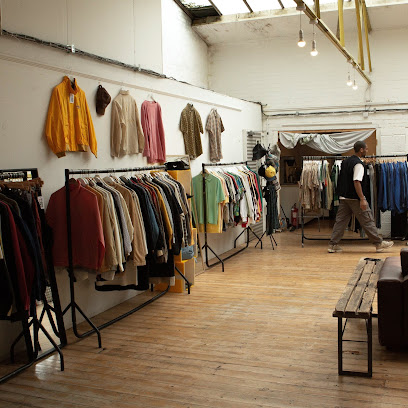
Enchanted Planet
Discover ethically crafted gifts and sustainable living essentials at Enchanted Planet, a family-run shop dedicated to a greener future.
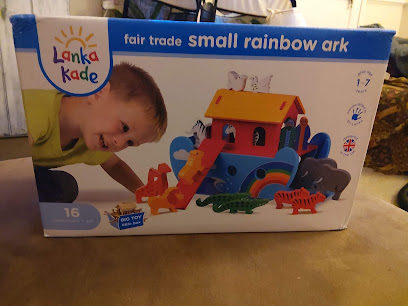
The Alchemist's Forge
Discover bespoke sterling silver and gold-accented jewellery crafted with artistry and nature’s inspiration in the tranquil Lamington countryside.
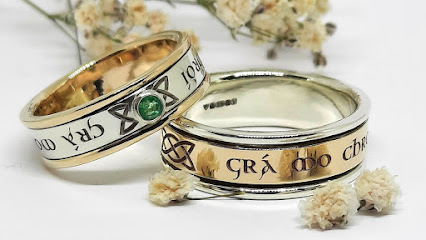
Essential bars & hidden hideouts
Inn On The Loch
Cozy bar and restaurant with scenic loch views, generous portions, and excellent vegan options in the heart of Lanark.
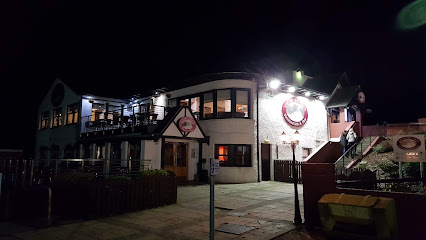
Thistle Street Bar
A cozy and authentic Scottish bar in Edinburgh’s Old Town, famed for superb ales, live traditional music, and warm local hospitality.
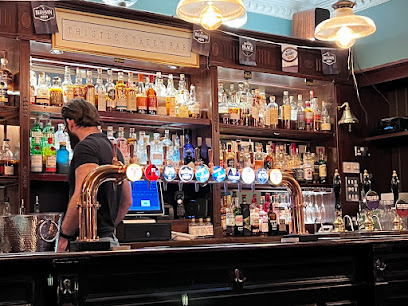
The Craig Bar
A lively Grantown-on-Spey pub famed for its exceptional pies, warm atmosphere, and authentic Highland hospitality.
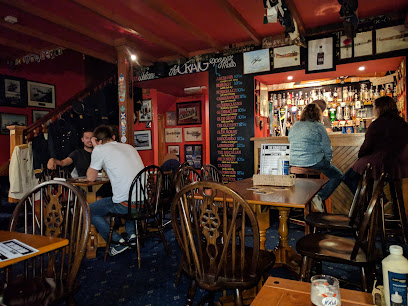
The Clachan Inn
Experience authentic Scottish hospitality, exceptional pub cuisine, and cozy lodging in the heart of St John's Town of Dalry.
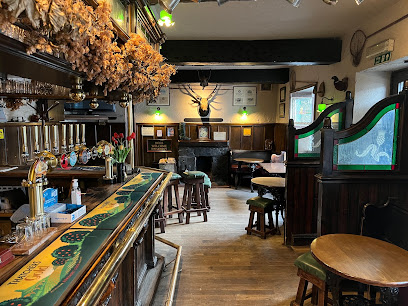
Brodies
A cozy bar and restaurant in Moffat offering delicious Scottish fare, friendly service, and a stylish gin lounge in a welcoming atmosphere.
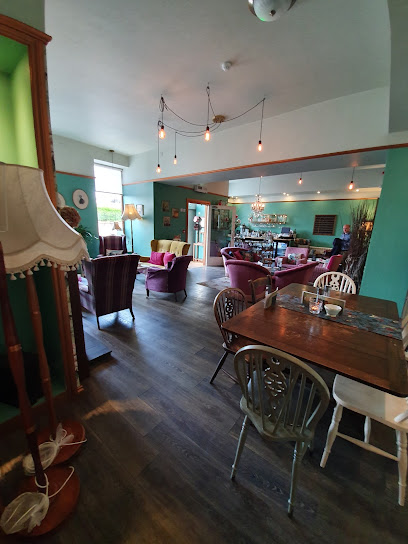
Bothy Bar
A cozy Highland retreat offering traditional Scottish fare, warm hospitality, and stunning views in the heart of Kinlochleven.
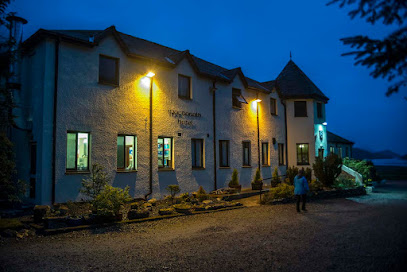
Claymore Bar
Experience authentic Highland hospitality with local ales, hearty Scottish fare, and lively music at Claymore Bar in Grantown-on-Spey.
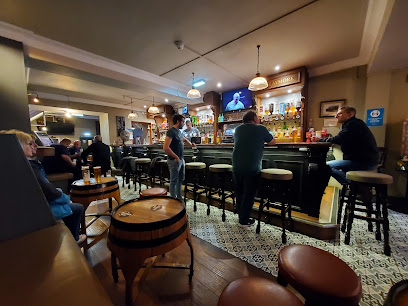
Colebrooke Arms
A cozy village pub in Crawfordjohn offering hearty Scottish fare and warm hospitality amidst the scenic South Lanarkshire countryside.
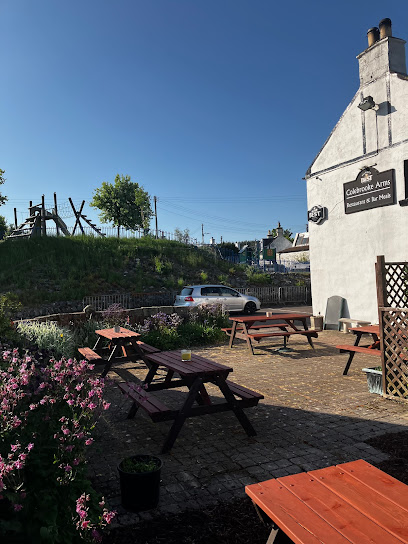
The Last Shift Braehead
Cozy Scottish pub in Braehead serving hearty homemade meals with friendly service and a welcoming local atmosphere.
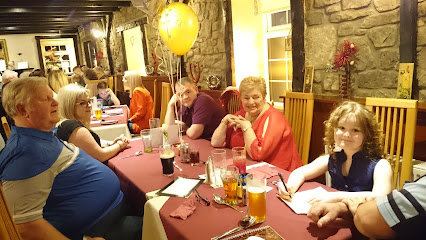
SUIE BAR
Experience authentic Highland hospitality with local ales, whiskies, and live music in the historic heart of Kincraig.
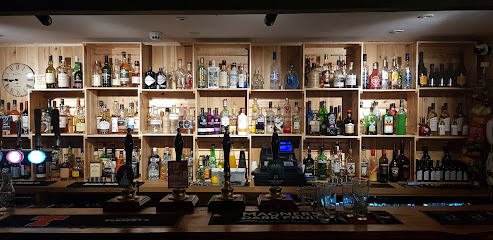
The Cross Keys Inn
Historic 18th-century inn in Douglas offering cozy charm, hearty Scottish fare, and welcoming hospitality by an open coal fire.
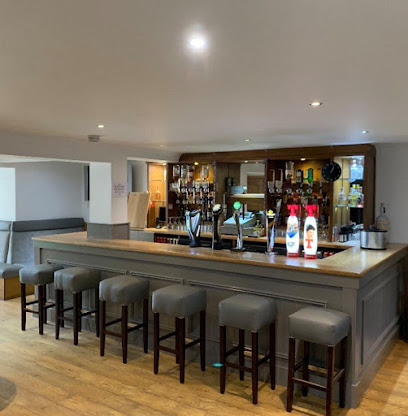
Harris and Ollie's
A vibrant Lesmahagow bar known for live music, boozy brunches, and a welcoming community atmosphere.
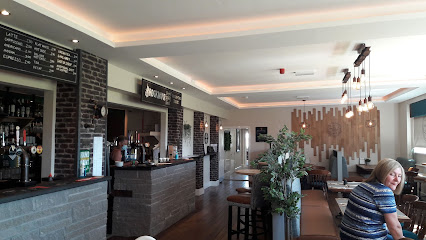
Coach House Inn
A welcoming village pub and inn in Muirkirk, blending traditional Scottish hospitality with modern comfort and a lively atmosphere.
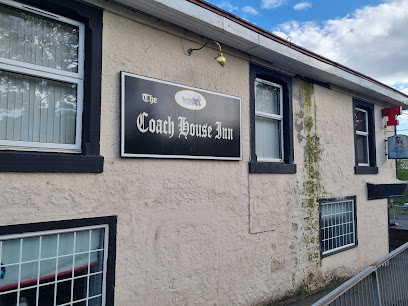
The Caledonian Bar, Gallery Bistro & Late Lounge
A vibrant grill and bar venue in Carluke blending dining, art, and nightlife with a welcoming and lively atmosphere.
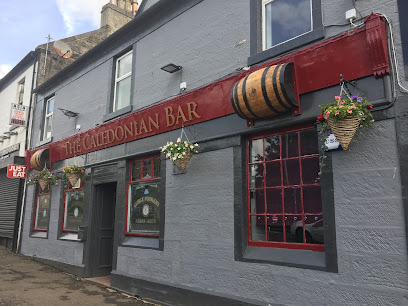
Local Phrases about Scottish Highlands
-
- HelloHullo
[hu-loh] - GoodbyeCheerio
[chee-ree-oh] - YesAye
[aye] - NoNaw
[naw] - Please/You're welcomePlease/Nae bother
[pleez/ney baw-ther] - Thank youThank ye
[thank yee] - Excuse me/SorryExcuse me/Sorry
[ex-kews me/sor-ee] - How are you?How ye daein?
[how yee day-in] - Fine. And you?Fine. And yersel?
[fine. and yer-sel] - Do you speak English?Dae ye speak Scots?
[day yee speak scots] - I don't understandI dinnae ken
[i din-ay ken]
- HelloHullo
-
- I'd like to see the menu, pleaseCan I hae a look at the menu, please
[can a hay a look at the menu, please] - I don't eat meatI dinnae eat meat
[i din-ay eat meat] - Cheers!Slàinte!
[slahn-cha] - I would like to pay, pleaseI'd like tae settle up, please
[i'd like tay settle up, please]
- I'd like to see the menu, pleaseCan I hae a look at the menu, please
-
- Help!Help!
[help] - Go away!Gae awa!
[gay a-wa] - Call the Police!Fone the Polis!
[fone the pol-iss] - Call a doctor!Fone a doctor!
[fone a doc-tor] - I'm lostI'm awa' aff my heid
[im aw-ah aff my head] - I'm illI'm feelin peely-wally
[im feel-in pee-lee wah-lee]
- Help!Help!
-
- I'd like to buy...I'm lookin tae buy...
[im look-in tay buy] - I'm just lookingI'm jist haein a keek
[im jist hay-in a keek] - How much is it?Hoo muckle is it?
[hoo muck-le is it] - That's too expensiveThat's owre dear
[thats ow-er deer] - Can you lower the price?Can ye gie us a bit aff?
[can yee gee us a bit aff]
- I'd like to buy...I'm lookin tae buy...
-
- What time is it?Fit time is it?
[fit time is it] - It's one o'clockIt's yin o'clock
[its yin o-clock] - Half past (10)Half ten
[half ten] - MorningMornin
[mor-nin] - AfternoonEfternuin
[ef-ter-noo-in] - EveningE'enin
[ee-nin] - YesterdayYestreen
[yes-treen] - TodayThe day
[the day] - TomorrowThe morn
[the morn] - 1Yin
[yin] - 2Twa
[twa] - 3Three
[three] - 4Fower
[fow-er] - 5Fife
[fife] - 6Six
[six] - 7Seiven
[siv-en] - 8Echt
[echt] - 9Nyne
[nyne] - 10Ten
[ten]
- What time is it?Fit time is it?
-
- Where's a/the...?Whaur's a/the...?
[wharz a/the] - What's the address?Fit's the address?
[fits the address] - Can you show me (on the map)?Can ye shaw me (on the map)?
[can yee shaw me (on the map)] - When's the next (bus)?Whit time's the next (bus)?
[whit timez the next (bus)] - A ticket (to ....)A ticket (tae ....)
[a ticket (tay)]
- Where's a/the...?Whaur's a/the...?
History of Scottish Highlands
-
The Scottish Highlands were once home to the Picts, a confederation of tribes known for their distinct culture, art, and fortifications. The Picts are famous for their enigmatic stone carvings and standing stones, some of which can still be seen scattered across the Highlands. They played a crucial role in the early history of Scotland until they merged with the Scots in the 9th century.
-
Following the unification of the Picts and Scots, the Kingdom of Alba emerged around the 9th and 10th centuries. This early medieval kingdom laid the foundation for what would eventually become Scotland. Significant battles and power struggles took place during this period, shaping the political landscape of the Highlands.
-
The clan system was a defining feature of the Scottish Highlands, with each clan having its own territory, traditions, and tartans. Clans such as the MacDonalds, Campbells, and MacLeods played major roles in the history of the Highlands. Clan feuds, alliances, and battles were common and have left a lasting legacy on the culture and social structure of the area.
-
The Battle of Culloden, fought on April 16, 1746, was the final confrontation of the Jacobite rising of 1745. The battle saw the forces of Charles Edward Stuart ('Bonnie Prince Charlie') defeated by the British Army led by the Duke of Cumberland. This decisive battle, which took place near Inverness, marked the end of the Jacobite cause and led to significant changes in the Highlands, including the suppression of the clan system and Highland culture.
-
The Highland Clearances were a series of forced evictions that took place during the 18th and 19th centuries. Landowners sought to increase profits by turning arable land into sheep farms, leading to the displacement of thousands of Highlanders. Many were forced to emigrate to the Americas, Australia, and other parts of the British Empire. The Clearances had a profound impact on the population, culture, and landscape of the Highlands.
-
The Victorian era saw a renewed interest in the Scottish Highlands, spurred in part by Queen Victoria's frequent visits to Balmoral Castle. The romanticized view of the Highlands, popularized by literature and art, attracted tourists and adventurers. This period marked the beginning of the Highlands as a tourist destination, a trend that has continued to grow to this day.
-
Today, the Scottish Highlands are known for their stunning landscapes, rich history, and vibrant culture. The region has become a popular destination for outdoor activities such as hiking, skiing, and fishing. Efforts to preserve the Gaelic language and traditional Highland culture are ongoing, ensuring that the unique heritage of the Highlands continues to thrive.
Scottish Highlands Essentials
-
The Scottish Highlands can be accessed through multiple routes. The nearest major airports are Inverness Airport and Glasgow Airport. From London, you can take a direct flight to Inverness, which takes approximately 1.5 hours. Alternatively, you can travel by train; the Caledonian Sleeper offers an overnight journey from London to various Highland destinations. For those preferring to drive, the A9 is the main road connecting the Highlands to the rest of Scotland.
-
Public transportation in the Highlands includes buses and trains, but services can be infrequent, especially in remote areas. Renting a car is highly recommended for flexibility and to explore off-the-beaten-path locations. Local taxis are available in towns, and cycling is also a popular way to get around. For scenic views, consider taking the Jacobite Steam Train from Fort William to Mallaig, famously known as the Hogwarts Express.
-
The official currency is the British Pound Sterling (GBP). Credit and debit cards are widely accepted, but it's advisable to carry some cash for smaller, rural establishments that may not have card facilities. ATMs are available in most towns, but it's wise to withdraw sufficient cash before heading into more remote areas.
-
The Scottish Highlands are generally very safe for tourists. However, basic precautions should be taken. Avoid leaving valuables in your car, especially in remote parking areas. The crime rate is low, but it's always best to stay vigilant. Specific areas with higher tourist traffic, such as Inverness, can attract pickpockets, so keep an eye on your belongings.
-
In case of emergency, dial 999 for police, fire, or medical assistance. Major towns like Inverness have hospitals and medical facilities. It's recommended to have travel insurance that covers medical emergencies. For non-urgent medical issues, local pharmacies can provide over-the-counter medications and advice.
-
Fashion: Do wear layers and waterproof clothing, as the weather can be unpredictable. Avoid overly casual attire when dining at upscale restaurants. Religion: Do show respect in religious sites; some churches may require modest dress and covered heads. Public Transport: Do give up your seat for elderly passengers and avoid loud conversations. Don’t eat or drink on public transport unless allowed. Greetings: Do greet people with a friendly 'hello' or 'hi.' A firm handshake is common in formal settings. Eating & Drinking: Do try local specialties like haggis and whisky. Don’t refuse a drink offered by your host, as it can be considered rude.
-
To experience the Scottish Highlands like a local, visit the smaller villages and interact with residents. Attend local festivals such as the Highland Games for a taste of traditional Scottish culture. Explore the lesser-known trails and lochs to avoid crowds. Don’t miss out on local pubs for an authentic experience of Highland hospitality and storytelling.
Trending Landmarks in Scottish Highlands
Nearby Cities to Scottish Highlands
-
Things To Do in Stirling
-
Things To Do in Dundee
-
Things To Do in Glasgow
-
Things To Do in Aberdeen
-
Things To Do in Edinburgh
-
Things To Do in Derry
-
Things To Do in Belfast
-
Things To Do in Newcastle upon Tyne
-
Things To Do in Ramsey
-
Things To Do in Kirk Michael
-
Things To Do in Laxey
-
Things To Do in Peel
-
Things To Do in Durham
-
Things To Do in Onchan
-
Things To Do in Douglas













